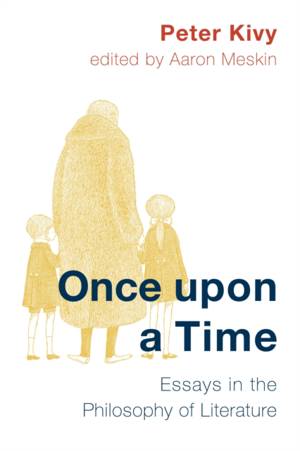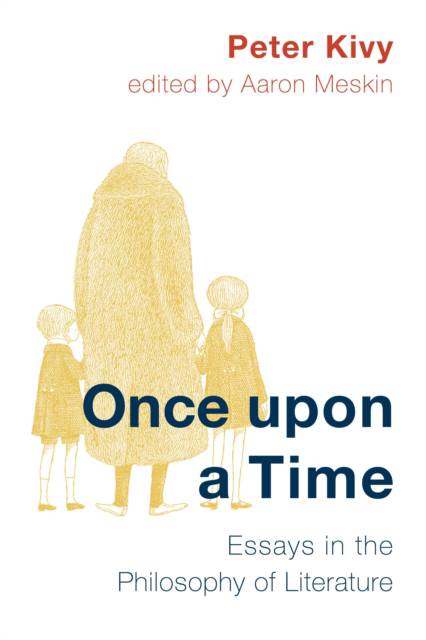
- Afhalen na 1 uur in een winkel met voorraad
- Gratis thuislevering in België vanaf € 30
- Ruim aanbod met 7 miljoen producten
- Afhalen na 1 uur in een winkel met voorraad
- Gratis thuislevering in België vanaf € 30
- Ruim aanbod met 7 miljoen producten
€ 88,45
+ 176 punten
Uitvoering
Omschrijving
Once Upon a Time is a collection of essays in the philosophy of literature with two central themes: the significance of story -telling for us and the question of whether the novel, perhaps the art form most closely associated with story-telling, is a legitimate source of human knowledge. Leading philosopher of art Peter Kivy explores why human beings are so enthralled by being told stories and whether story-telling is a significant source of knowledge. Starting with a study of Aristotle's Poetics, Kivy then undertakes a critical discussion of Noel Carroll's suggestion that our interaction with the artists of the past is a kind of "conversation." He goes on to defend the thesis that one of the legitimate artistic pleasures we take in novel-reading is the acquiring of knowledge and, furthermore, that the silent reading of a novel is a kind of performance, making the novel one of the performing arts. The volume concludes with a chapter about jokes, and, in particular, whether it is immoral to tell or be amused by an "immoral" joke. This volume of essays is a must-read for anyone seriously interested in literature and the conceptual problems it may raise for philosophers.
Specificaties
Betrokkenen
- Auteur(s):
- Uitgeverij:
Inhoud
- Aantal bladzijden:
- 140
- Taal:
- Engels
Eigenschappen
- Productcode (EAN):
- 9781786607355
- Verschijningsdatum:
- 7/08/2019
- Uitvoering:
- Paperback
- Formaat:
- Trade paperback (VS)
- Afmetingen:
- 152 mm x 229 mm
- Gewicht:
- 213 g

Alleen bij Standaard Boekhandel
+ 176 punten op je klantenkaart van Standaard Boekhandel
Beoordelingen
We publiceren alleen reviews die voldoen aan de voorwaarden voor reviews. Bekijk onze voorwaarden voor reviews.








